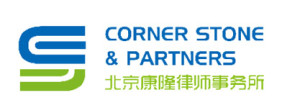Webcasts, or broadcasts made on the internet, can be divided into live webcasts and interactive webcasts. An interactive webcast includes live broadcasts of games, shows and pan-entertainment. Anchors often use unauthorised music works where they earn income by singing songs, flaunting talents and interacting with fans to get rewards, or by sharing advertising incomes.

Senior Partner
Corner Stone & Partners
In 2020, the annual report of Chinese webcast platform DouYu revealed that its gross revenue was RMB9.6 billion (USD1.5 billion), with a net profit of RMB485.5 million (USD76 million). So, it can be seen that the webcast industry can be very rewarding. The anchor may start broadcasting only by signing an agreement with a webcasting platform, and earn money without leaving home.
Types of infringement
The anchors autonomously choose the broadcasting time and content, as well as deciding whether to share their webcasting rooms. Therefore, the anchors’ webcasting is immediate and unpredictable. Infringement frequently occurs in the process of webcasting, and the modes of infringement are playing or singing unauthorised music works.
Before the amendment to China’s Copyright Law in 2020, the type of infringed right referred to article 10.17: “Any other rights a copyright owner is entitled to enjoy.” After the amendment, the infringed right should be “the right of broadcast” in article 10.11 of the law.
Court’s criteria for judgment
In trying such cases, the court will first examine the evidence concerning ownership, whether the authorisation chain is complete and valid, and then examine whether the evidence of infringement is true and valid. When calculating the damages, the court will consider the following: (1) the originality, creation cost, popularity and frequency of use of the infringed music; (2) the popularity and/or maliciousness of the anchor; (3) the amount of viewers, and their praise for the webcasting room; and (4) how the platform is known, whether the webcasting has playback, and whether the infringing video had been widely transmitted.

IP Attorney
Corner Stone & Partners
As it is difficult to defend rights with the anchor as the defendant, the copyright owner generally makes the webcasting platform the defendant to prosecute. In doing so, the copyright owner tries to push the platform to regulate its business properly, enter into a co-operation agreement with them, and set up a database of white-list music works.
In finding the webcasting platform’s liability, the court will consider the modes and circumstances of infringement, and the fault on the platform’s part. To reduce their share of infringement liability, the major webcasting platforms might change the ownership of the IP rights involved in the webcasts from the platforms to the anchors enjoying the right to use and re-edit the music works.
Meanwhile, platforms may punish infringing acts by anchors by issuing a notification on the prohibition of audio or video services, banishing the anchors from the webcasting room, deleting violating information, limiting relevant resources, withholding or freezing commissions, and banning relevant accounts and webcasting rooms.
However, the platforms usually send a notice or an in-house letter symbolically, or may only check the playback to show that they have fulfilled their due diligence in an attempt to evade or reduce their liability. Nevertheless, because of benefit sharing with the anchors, the platforms cannot be exempted from their liability.
The final results
Because of the uncertainty over webcast infringements, it is impossible for copyright owners to track infringements and collect evidence all the time. To reduce the cost of defending rights, the evidence may be obtained with a high degree of probability. Obtaining evidence via blockchain and timestamps has been widely accepted by the court. With complete and valid ownership evidence, it is difficult for anchors and webcasting platforms to evade their liability.
Although the court judges a webcasting platform guilty of direct infringement, or help in infringement, the amount of damages it determines is usually very small. Considering that infringements are repeatedly committed by different anchors, the copyright owners are unlikely to find evidence every time infringements have occurred, and the platforms are actually permissive to infringement.
The small damages are utterly disproportionate to the benefits the platforms derive from their infringements. Further efforts should be made to increase the amounts of damages, properly apply punitive damages, order the platforms to provide background evidence for profits, and consider banning infringing anchors’ accounts compulsorily.
Fu Zhenkun is a senior partner and Gao Rongrong is an IP attorney at Corner Stone & Partners

Corner Stone & Partners
1905, Tower B, Tian Yuan Gang Centre,
No. 2 Dongsanhuan North Road, Chaoyang District,
Beijing 100027, China
Contact details:
Tel: +86-10-84464600
Email: zhenkun.fu@cornerstoneip.com.cn
rongg@cornerstoneip.com.cn



























